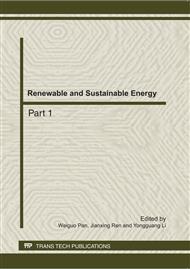p.3321
p.3325
p.3330
p.3337
p.3341
p.3345
p.3351
p.3357
p.3361
Ecosystem Services in China: an Emerging Hot Topic
Abstract:
The paper reviewed the research trends on ecosystem services in China based on the searching of ISI web of knowledge. After assessing the matches of a total of 33 papers, all of them were identified as addressing ecosystem services in China. The results showed that the last decade yielded an increasing number of studies on ecosystem services in China and the numbers of papers were increasing steadily after 2006. The total value of ecosystem services declines because of the land-use change and the decline is largely attributable to the increase of construction land in urban area, the conversion from wetland and forest ecosystems which have higher value of ecosystem services to agriculture, grassland and urban ecosystem. Based on the research trends on ecosystem services in China, we suggested that the ecological and environmental loss should be integrated into the decision-making system and the further environmental managements needed to decrease the harmful impact of mining and restore the injured natural ecosystems.
Info:
Periodical:
Pages:
3341-3344
Citation:
Online since:
October 2011
Authors:
Price:
Сopyright:
© 2012 Trans Tech Publications Ltd. All Rights Reserved
Share:
Citation:


